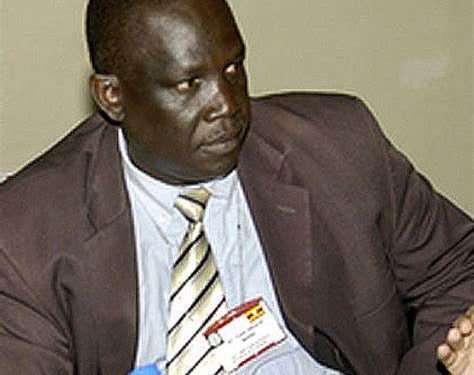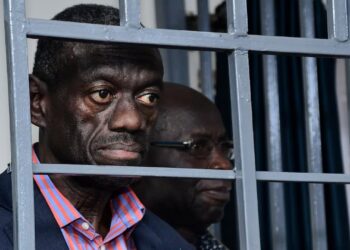By Peril Writer
In the hallowed halls of medicine, where hope intertwines with the fragility of life, there exists a realm of profound responsibility—a covenant between healers and the healed, where trust is sacrosanct, and errors are measured not in miscues, but in lives forever altered or lost. Within this tapestry of human frailty and resilience, the recent passing of Dr. Tom Okurut, former Executive Director of the National Environmental Management Authority (NEMA), serves as a harrowing reminder of the stakes at hand, as well as the dire consequences when negligence taints the sanctity of the healing profession.
Dr. Okurut’s journey from the corridors of authority to the sterile confines of a city clinic was not one of choice, but of necessity—an urgent summons propelled by the relentless grip of discomfort, a harbinger of a fate unbeknownst to those who valiantly fought to preserve his existence. It was within these walls, amidst the hum of machinery and the whispered prayers of loved ones, that the tragedy unfolded—a sequence of events shrouded in uncertainty, yet underscored by a profound loss that reverberated across the nation.
The revelation that Dr. Okurut’s demise stemmed from a deficiency as fundamental as oxygen—a lifeline denied by circumstance, rather than scarcity—strikes at the core of our collective vulnerability. In a world where medical marvels intertwine with the fallibility of human judgment, the notion that a life could be extinguished due to a preventable oversight is a bitter pill to swallow—a stark reminder of the fine line between salvation and despair.
As the details emerge, painting a mosaic of missed opportunities and missteps, the weight of grief becomes palpable—a burden borne not only by those who knew Dr. Okurut personally but by every soul touched by the tendrils of mortality. The realization that a fleeting moment of inattention, a lapse in vigilance, could herald the demise of a cherished life is a truth too bitter to confront, yet too urgent to ignore.
In the realm of medical malpractice, the specter of negligence looms large—a silent predator lurking amidst the sterility of operating theaters and the solemnity of intensive care units. It is a menace that knows no bounds, sparing neither the affluent nor the destitute, as evidenced by Dr. Okurut’s untimely passing—a beacon extinguished by the very hands entrusted with its preservation.
But amidst the anguish and indignation, there lies a glimmer of hope—a call to action echoing across the annals of healthcare, demanding accountability and reform. For every life lost to negligence, there exists a mandate to enact change—to scrutinize, educate, and empower those tasked with safeguarding the sanctity of life. It is a solemn duty—one that transcends politics and borders, uniting humanity in a shared commitment to honor the legacy of those who have fallen victim to the scourge of medical mishap.
Dr. Okurut’s legacy is not one of tragedy alone but of resilience—a testament to the indomitable spirit that pervades even the darkest of times. In his memory, let us strive for a future where negligence is but a relic of the past, where every life is cherished, and every loss serves as a catalyst for change.
As we mourn the passing of Dr. Tom Okurut, let us also heed the lessons his life and death impart—a reminder that in the pursuit of healing, there can be no room for complacency, no tolerance for negligence. For in the crucible of tragedy lies the impetus for transformation—a beacon of hope amidst the shadows of despair.
In the wake of Dr. Okurut’s untimely demise, let us stand united in our grief, our resolve, and our commitment to ensuring that such a tragedy never befalls another. For in our collective mourning lies the seeds of a brighter tomorrow—a future where every life is cherished, every loss mourned, and every lesson learned.







Discussion about this post